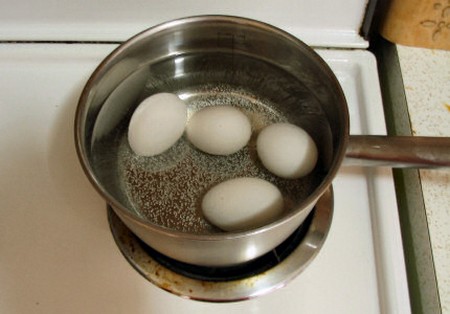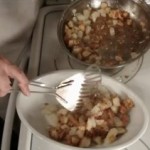This article will help you to boil the eggs in the need ways, follow the steps carefully.
Procedure:
Choosing the eggs:
Fresh eggs are less prone to cracking because they have a low pH in the white, causing it to adhere to the inner shell membrane, essentially “sealing” it together. But, this also makes fresh eggs more difficult to peel. Eggs which have been refrigerated for several days have higher pH and are more likely to crack, but they’re easier to peel. Instead of waiting for fresh eggs to get old, you can add a teaspoon of baking soda to a quart of water when cooking (which raises the pH and reduces adhering) but it might make the eggs taste slightly more sulfuric. Or, just cook fresh eggs a little longer and allow the white to firm up in fridge before peeling. If you’re going to be cutting the boiled eggs in half, you might want to use the freshest eggs you can find, since they tend to have a more centered yolk and less likelihood of greening.

Place the eggs:
Some sources recommend making a shallow hole with a pin at the flatter end so that it’ll let the expanding air escape thus reducing the chance of cracking but studies have shown this isn’t a reliable technique. Adding salt will make the eggs easy to peel. Salt or vinegar to the water may help the proteins in the white coagulate faster so any cracks in the shell quickly get plugged.
Preparation:
If the water is cold, the eggs will take longer to cook. If the water is hot, though, you may risk the water getting too hot too early and overcooking the eggs (i.e. exposing the eggs to boiling temperature for too long).
Boil:
Ideally, you should have a thermometer in the water and be able to monitor the temperature to keep it within a specific range. However, the general consensus among most sources seems to be to cover the pot, bring the water to a boil, and remove from heat as soon as boiling temperature is reached. Keep the lid on so that the water remains at slightly below boiling point. If you keep the eggs at boiling temperature, you risk overcooking the eggs, which over coagulates the proteins and generates hydrogen sulfide in the egg. How long you leave the egg in the pot depends on how you want it to come out. Here are some recommended times to start with, but you may have to experiment, as the actual time required also depends on the size of the eggs, the number of eggs, the temperature of the eggs when they’re placed in the pot, and the temperature of the water. Thus the egg is boiled and ready to serve.


